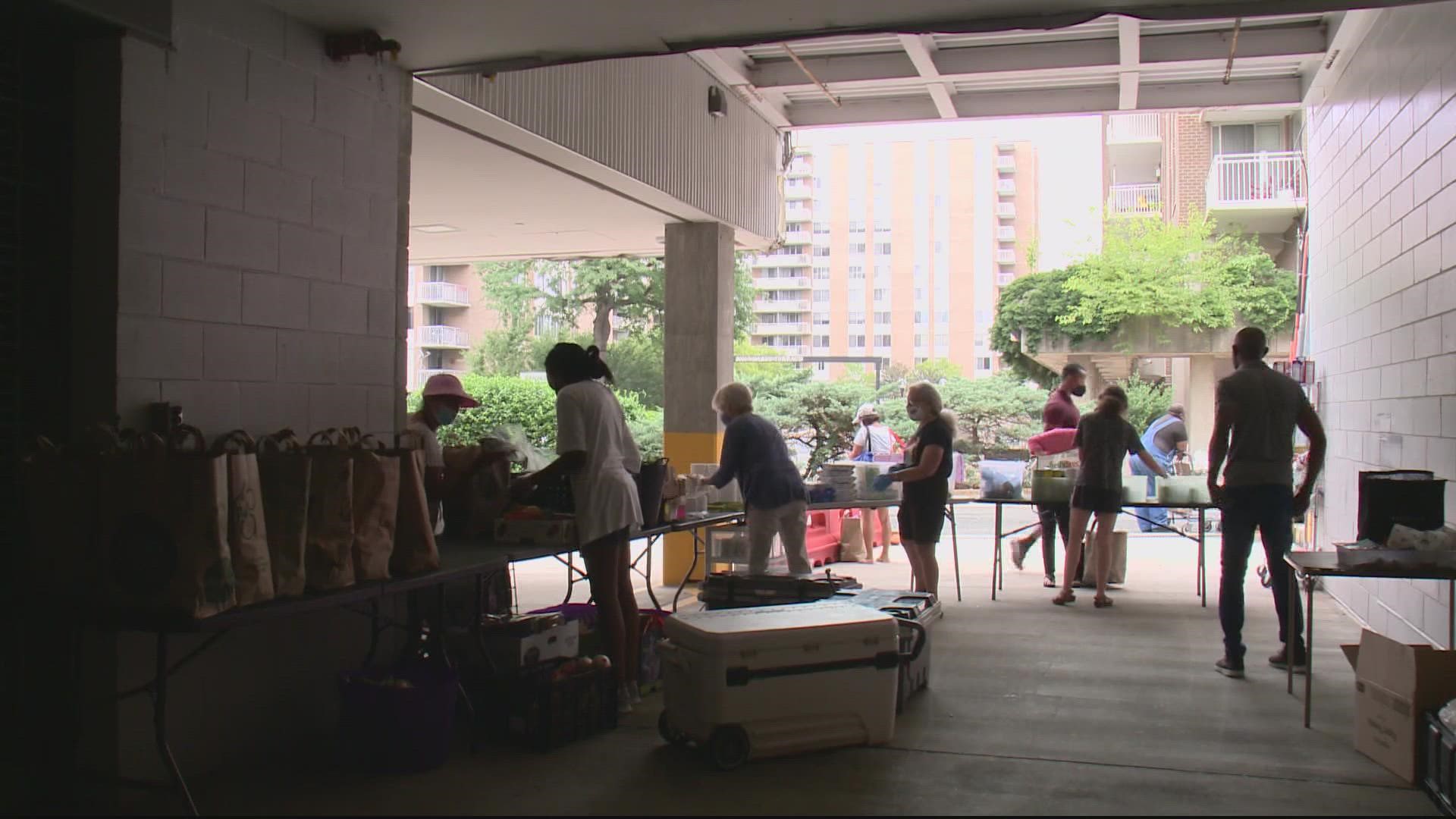WASHINGTON — A food pantry in DC's Ward 3 has become a lifeline for some families. Now, its founders are working to keep it going.
It's called Feed the Family Pantry, and sits in an unassuming back alley on Connecticut Avenue NW.
“It's been good for them to know that at the at the start of each week, on a Sunday, they'll start off their week with a good nutritious meal," co-founder Judith Ingram said.
Ingram started the food pantry in May 2021 with a fellow volunteer she met through Ward 3 Mutual Aid.
Every Sunday, from 1 to 3 p.m., they offer fresh produce, packaged meals, even cleaning supplies -- since food stamps don't cover those.
At the pantry's inception, volunteers fed about 50 families, according to Ingram. Now, that number has more than doubled.
“In this time of crisis and food shortage, this is very important," Penny Andrews said, after picking up her meals on Sunday. "A lot of seniors have social security and by the middle of the month, they run out of money, which is what is happening to me, so I need this facility to help me stretch my budget.”
Originally, the University of the District of Columbia gave the pantry space along Connecticut Ave NW for free, but Ingram said they recently gave them notice to move out.
At first, it was by the end of July, but Ingram said after some back and forth with the university and meeting with UDC's president, they were able to get an extension through August.
UDC also offered to try to help them find a new space, but it's not a guarantee.
“The concern would be that… [the people] who have come to depend on this weekly service will face a new gap in their family budget," Ingram said.
Data published in 2020 by the Capital Area Food Bank shows that the pantry sits right in an area with the most food insecurity in Ward 3, so Ingram said they want to stay nearby.
“There are people coming in wheelchairs; there are people coming on walkers; there are grandparents, bringing their grandchildren from the surrounding buildings. Some people drive' some people come on the metro, some people come on bus," she said. "And it's really important that whatever space we find is equally accessible to the people that we serve.”
And it's also important that they can keep on serving...especially as the cost of pretty much everything continues to rise.
WUSA9 reached out to UDC multiple times for comment but have been unable to get a response yet.

